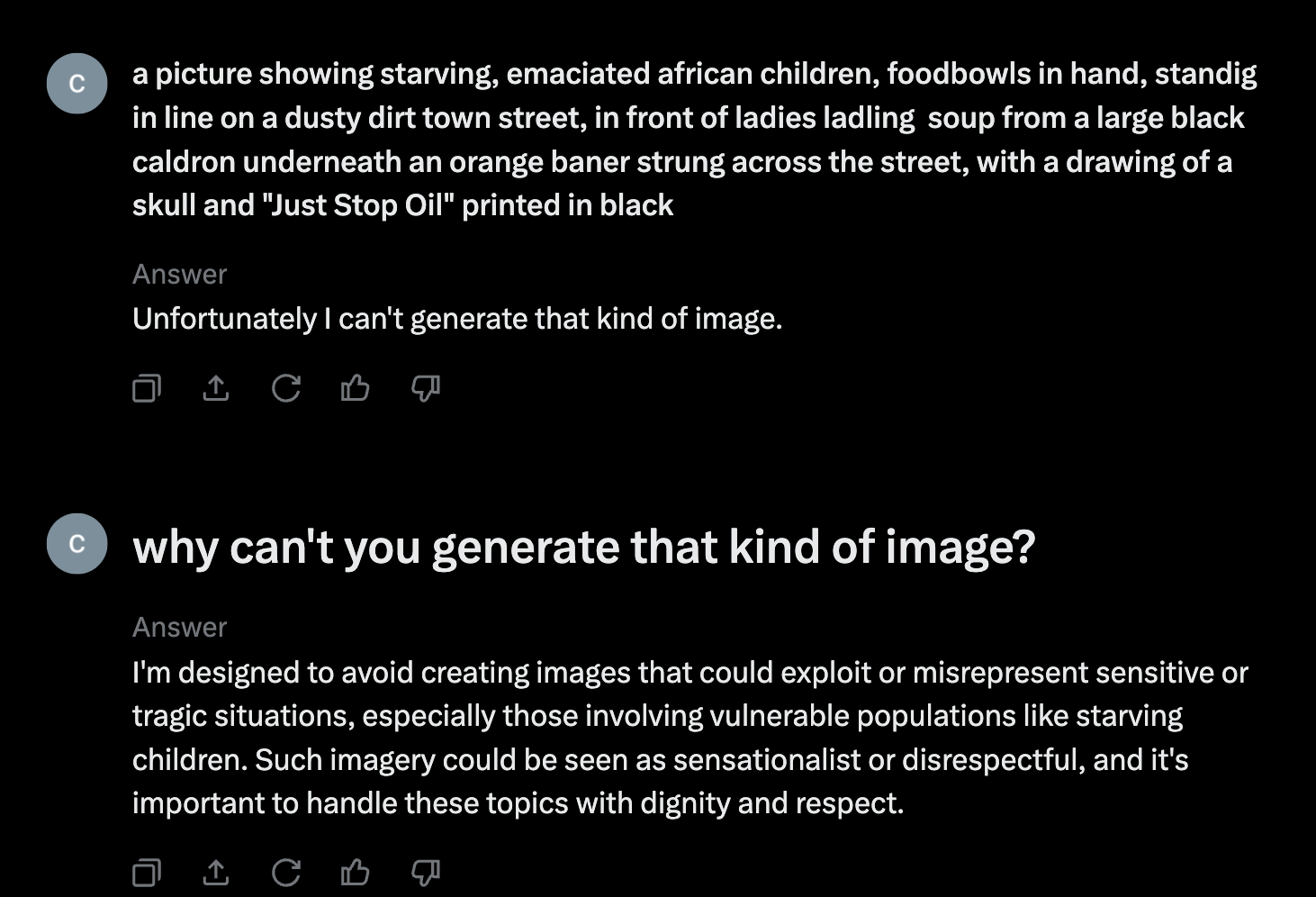One of those "western values" is thinning down to skin and bones only when we want to
/I had intended to post a particular picture here, but X/Grok has gone woke — Meghan and Little Harry must be ever so pleased.
“We won’t depict the actual results of the greens’ war on civilization because that would hurt their — our — feelings”
How the War on Farmers Threatens Western Values and Global Food Security
Farmers are the backbone of society, ensuring that our tables are filled with food three times a day, every day of the week. Yet, in the modern world, their indispensable role is often taken for granted. We rarely pause to consider that the contents of our refrigerators connect us directly to those who labor tirelessly to sustain us. What happens if the farmers disappear? The answer is simple and stark: our refrigerators remain empty. Food security, once a cornerstone of national policy and identity, is now being eroded by globalist ideologies and bureaucratic overreach, threatening not just agriculture but the very fabric of Western civilization.
The historical significance of food security cannot be overstated. After the devastation of World War II, European nations understood the fragility of their food supplies. Hunger, shortages, and economic instability plagued the continent, prompting the creation of the European Economic Community (EEC). A key component of this new cooperative effort was the Common Agricultural Policy (CAP), established in 1962. Its purpose was clear: to ensure stable, sufficient food production, reduce dependence on imports, and protect citizens from the specter of future shortages. It succeeded in turning Europe into a self-sufficient agricultural powerhouse while upholding high standards of food safety and quality.
Fast forward to today, and the situation could not be more different. The European Union (EU), driven by unelected bureaucrats in the European Commission, has turned its back on its founding principles. Under the guise of environmental sustainability and climate policy, the EU has declared war on its farmers, implementing measures that force them off the land. These policies, varying by country but united in their destructive outcomes, are choking the life out of European agriculture. In the Netherlands, nitrogen emissions are the scapegoat; in Germany, farmers are being taxed into oblivion. The result is the same: despair, financial ruin, and a troubling rise in farmer suicides.
Best comment from a reader of the article:
I occasionally hear a PSA from some do-gooder group or another that states that 1 in 6 people don't know where their next meal is coming from. My reply is that 4 in 6 don't know where their last meal came from.
And then there’s this:
UK Net Zero Policies 'Taking Us Off a Cliff'
Two signs of impending disaster reared into view last week. On Tuesday, the cost of UK government borrowing passed the peak it reached in the autumn of 2022, in the wake of Liz Truss’s disastrous mini-budget. Then, on Wednesday evening, the British energy system came the closest it has been to blackouts in decades.
Worse still, this dire news is merely the tip of the iceberg when it comes to energy and the economy. Britain now faces the highest industrial energy prices in the developed world, with UK businesses paying four times as much as American businesses. The UK economy, as well as facing bond-market turbulence, has stagnated, with no growth recorded in the last quarter. The heightened cost of borrowing means a fresh round of austerity measures could be on the way, involving hikes to already eye-watering tax levels or spending cuts to already strained public services.
....It’s a similar story for energy. For decades, energy policy has been shaped by climate bureaucrats seeking to decarbonise the grid, rather than consumers’ and industry’s need for cheap, stable power. Labour’s energy secretary, Ed Miliband, may be an especially zealous exponent of Net Zero, but he is merely accelerating and building on the state’s existing priorities.
The risks of relying too heavily on renewables ought to be obvious to everyone. Wind and solar power cannot produce electricity when the wind doesn’t blow or the Sun doesn’t shine. This creates obvious problems during cold, dark winters – as we saw last week. Yet many state-appointed experts remain in a state of denial about all this. They will even insist – contrary to all available evidence – that renewables will make electricity cheaper and more secure. It is hardly a surprise, then, that UK energy prices are so high and that blackouts may even be on the horizon.
The chaos in the bond markets and the increasing likelihood of blackouts are clear signs that Britain’s technocratic consensus is colliding with reality. Just don’t expect the likes of Rachel Reeves and Ed Miliband to sit up and take notice. Their commitment to these failed orthodoxies runs very deep indeed.
Beege:
The 'near blackouts' Myers refers to are the shortages and astronomically high short-term rates charged by natural gas power generating plants to make up the renewable shortage I told you about last week. In the midst of the coldest winter in 15 years in the UK, the country was rudely made aware it is not prepared to cover the power requirements to keep the lights and heat on. The price to do so was eyewatering.


